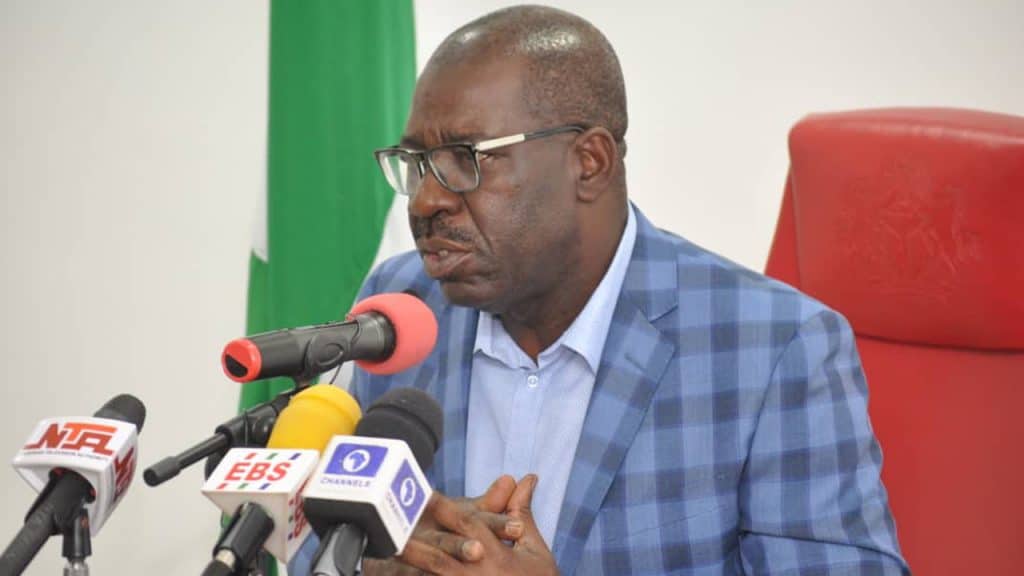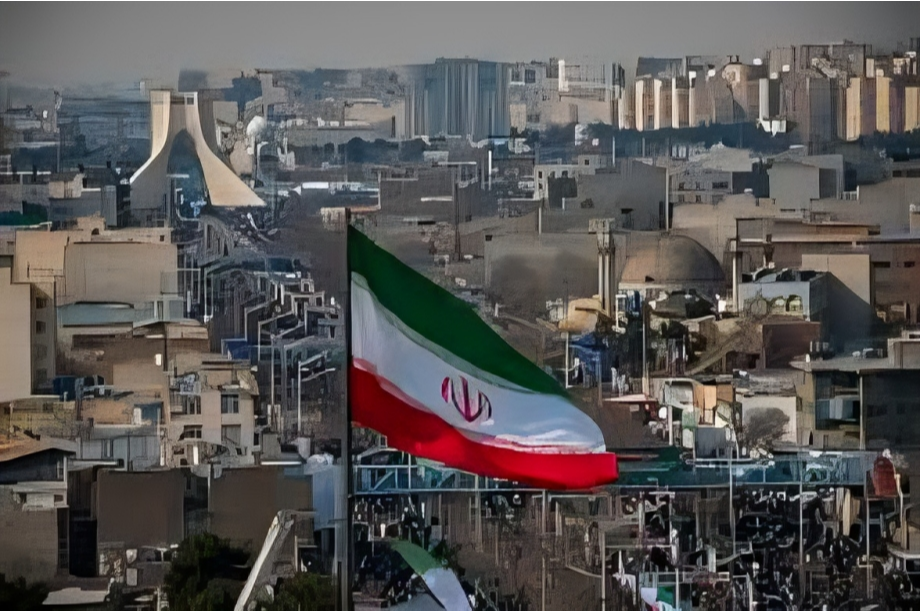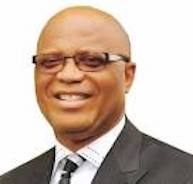NEWS
Obaseki Flags Off N1bn Feed-the-hungry Initiative in Edo

Gov. Godwin Obaseki of Edo on Friday flagged off the N1billion ‘Feed the Hungry’ Initiative through churches and mosques to cushion the effect of economic hardship on the people of the state.
Reports says that Obaseki, who met with Religious leaders in Benin, said the initiative being the first phase, would target more than 60,000 vulnerable individuals in Edo.
The governor added that the initiative, with the potentials to make significant difference in the lives of those in need, would go beyond food distribution to skills acquisition.
He said that the initiative would be solely driven by religious leaders while the state government would provide the funds and monitor the process.
According to Obaseki, the funds would be paid into a dedicated account for the religious leaders to implement the initiative.
“I have called you to collaborate with you so that we can grow ourselves out of this self inflicted economic hardship and hunger ravaging Nigeria.
“I know that when people are in distressed, very few of them will be able to cross the gate of the government house to see me.
“But almost all of them have been coming to the various churches and mosques for assistance.
“I am sure that in the last few years of extreme economic hardship, the burden of the churches and mosques have increased.
“That is why we want to use the churches and mosques for this initiative.
“When we first raised the alarm of an imminent economic danger, some people thought we were merely playing the opposition,” he said.
Obaseki said that as a government, rather than sit and lament over the situation it decided to lift the poor and the vulnerable out of hunger.
The governor also disclosed that, he would be using the structure of the feed the hungry initiative through churches and mosques to also distribute agriculture inputs for fishery and poultry.
“When we get this programme settled in the next few weeks, we will reach out to you to make the people know the inputs that we can give them.
“We will be giving them the assurance that we will buy all their produce, particularly the ones with protein,” he said.
The Chief Imam of Benin, Abdulfatai Enabulele, commended the governor for the initiative, while assuring that the items would reach the targeted people.
Also speaking, the Chairman Edo State Muslims Welfare Board, Ibrahim Oyarkhua, warned religious leaders to avoid hoarding the items for distribution and betraying the trust reposed in them,
Earlier in his remarks, Archbishop of Benin Catholic Diocese, Archbishop Austin Akubueze, said that the initiative to feed the poor through the Church will yield the desired result.(NAN)
Foreign News
French Butchers’ shops Closed After Child Dies of Rare Illness

Authorities in northern France have shut two butcher’s shops after several children were hospitalised and one died from a rare illness thought to be linked to infected meat products.
Investigators found that most of the children had eaten meat from the shops in Saint-Quentin, the prefecture announced on Friday.
The children aged between one and 12, eight children from the town of 53,000 inhabitants and surrounding area were hospitalised in the past week with severe diarrhoea.
Five developed haemolytic uraemic syndrome (HUS), a rare form of acute kidney failure, from which a 12-year-old child has died.
HUS usually occurs in children as a result of an intestinal infection, it leads to the formation of blood clots that block the brain, heart and kidneys in particular.
Up to 165 cases of children with HUS syndrome are documented in France each year.
The authorities urged residents not to consume meat products bought in the closed shops until laboratory tests have proven the cause of the illness beyond doubt.(dpa/NAN)
Foreign News
Over 650 Die in Iran After First Week of Israeli strikes

More than 650 people have been killed in Iran following a massive Israeli bombing campaign launched a week ago, an activist group said on Friday.
The U.S.-based Human Rights Activists News Agency (HRANA) reported that 657 people have died and 2,037 have been injured in the nationwide airstrikes.
The Iranian government does not publish daily figures on casualties.
HRANA relies on a broad network of informants and publicly available sources.
The group said the dead include at least 263 civilians and 164 members of the military.
Another 230 fatalities remain unidentified.
The network also reported damage to civilian infrastructure, including a projectile striking a children’s hospital in Tehran, which did not result in any injuries.
In the western province of Ilam, a fire station was damaged, HRANA said, while an Israeli attack on a car factory in western Iran triggered a large fire.
Israel maintains its objective is to prevent Iran from acquiring nuclear weapons, which it considers an existential threat. (dpa/NAN)
Education
NDIC Urges Youths To Shun Cybercrime, Embrace Financial Discipline

The Nigeria Deposit Insurance Corporation (NDIC) has advised youths to steer clear of cybercrimes and embrace legitimate sources of income to secure their future.
Mr Adefemi Shaba, NDIC Port Harcourt Zonal Controller, gave the remark on Friday while addressing over 300 students at the 2025 Financial Literacy Day held at Community Secondary School Okoro-Nu-Odo, Rumuagholu, Obio/Akpo area of Rivers.
The theme of the event was “Think Before You Follow, Wish Money for Tomorrow.
”Shaba emphasised the need for students to reject the ‘get-rich-quick’ mentality, saying that they should invest their time in productive and meaningful ventures that would secure their future.
According to him, cybercrime and other unlawful means of making money are destructive to progress, that must be avoided at all costs.
He explained that NDIC, in collaboration with the Central Bank of Nigeria (CBN), monitored and supervised banks to ensure safe and sound banking practices.
“NDIC is mandated to protect depositors’ funds, maintain stability within the financial system, guarantee bank deposit liabilities, and protect an efficient and effective payment system.
“This is why we are here – to educate students on managing their finances, saving, and investing for the future,” he stated.
Also speaking, Mr Alfred Ijah, Senior Manager, Communication and Public Affairs, NDIC, described the lack of financial literacy as a key challenge affecting the nation’s financial institutions.
He encouraged students to work hard, earn legitimately, and develop sound financial habits.
“It is important to cultivate the habit of saving, investing wisely, spending responsibly, and helping those in need.
“Making money through internet fraud, theft, or gambling is illegal. Money made through such means lacks legitimacy and is difficult to preserve or manage,” Ijah said.
Mr Peter Njoku, Assistant Director, Rivers State Ministry of Education, commended NDIC for selecting the state to host this year’s Financial Literacy Day.
Njoku, who represented the state government, stressed the critical importance of equipping young people with the knowledge of financial planning and long-term financial viability.
He urged students to apply the knowledge gained to improve their lives and grow into responsible citizens.
“Youths engaging in internet fraud require proper re-orientation, as cyber fraud is no different from stealing or robbery.
“They must desist, because every day is for the thief, but one day is for the owner of the house.
“If they persist, it will only lead to ruin, destroying their future and potential,” he concluded. (NAN)




















